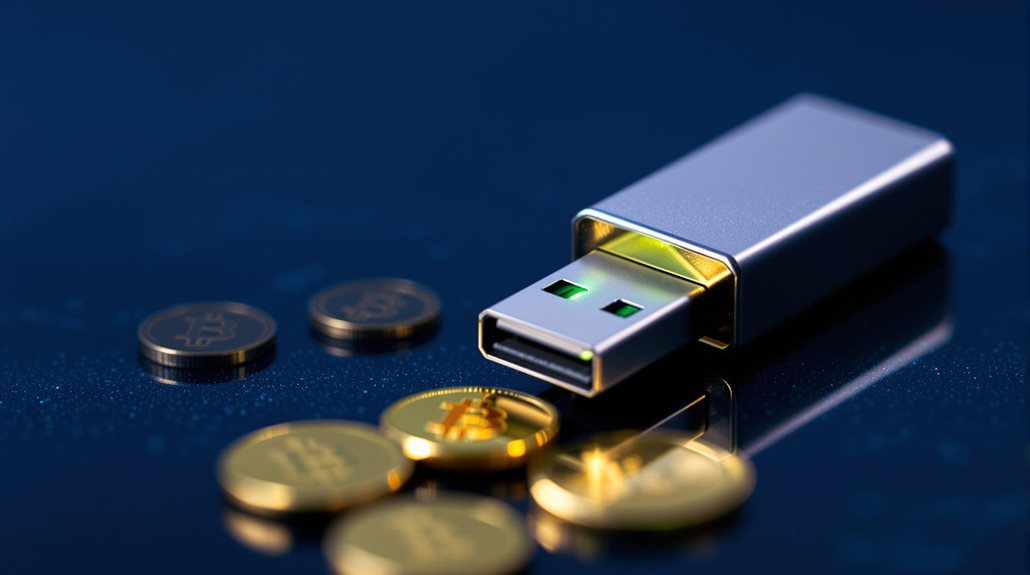Security tokens are digital assets that represent ownership in real-world items like real estate, artwork, or company shares. Unlike regular cryptocurrencies, they’re regulated by government agencies and must follow strict securities laws. They’re different from utility tokens, which are used for specific platform services. Security tokens operate on blockchain technology, making ownership tracking transparent and efficient. These tokens are creating new ways for people to invest in traditionally hard-to-trade assets.
Quick Overview
- A security token is a digital representation of real-world assets like stocks, real estate, or artwork recorded on blockchain technology.
- Unlike utility tokens, security tokens are regulated investment instruments that must comply with government securities laws.
- Security tokens can provide financial returns through dividends, interest payments, or ownership rights in underlying assets.
- Investors must typically undergo verification processes and meet regulatory requirements to purchase and trade security tokens.
- These tokens use blockchain for efficient trading of traditionally illiquid assets while maintaining transparent ownership records.

What exactly makes a token a “security token” in the world of cryptocurrency? It’s a digital representation of ownership in real-world assets, like stocks or real estate, that’s recorded on a blockchain. Unlike regular cryptocurrencies, security tokens are regulated by government agencies and must follow strict securities laws. Cryptocurrency tokens are created and distributed through initial coin offerings.
Security tokens are different from utility tokens in several important ways. While utility tokens are meant to be used within a specific platform or service, security tokens are investment instruments that can give holders financial returns or dividends. They’re designed to represent ownership in something valuable, whether it’s a company, property, or other assets. These tokens often require investors to go through verification processes and prove they’re qualified to invest. One notable example is Blockchain Capital, which pioneered security token offerings in the cryptocurrency space.
There are several types of security tokens out there. Equity tokens give you ownership in a company, similar to traditional stocks. Debt tokens work like loans, where investors expect to get their money back with interest. Asset-backed tokens represent ownership in physical things like buildings or gold. Fund tokens are like shares in investment funds, and derivative tokens get their value from other assets. Security tokens are especially attractive to investors because they offer revenue-sharing opportunities based on company performance.
The U.S. Securities and Exchange Commission (SEC) uses something called the Howey Test to figure out if a token counts as a security. This has led to the rise of Security Token Offerings (STOs), which are a more regulated way to raise money compared to Initial Coin Offerings (ICOs). STOs provide better protection for investors and must follow specific rules and regulations.
One of the cool things about security tokens is that they’re making it easier to buy and sell things that used to be hard to trade, like pieces of real estate or artwork. They use blockchain technology to track ownership and make transactions more efficient and transparent. This means everything’s recorded on a digital ledger that can’t be changed, making it safer and more reliable than traditional methods.
The market for security tokens is growing, and companies are building new systems to help people issue, trade, and store these tokens safely. It’s crucial to recognize that security tokens aren’t just regular cryptocurrencies – they’re regulated investment products that represent real ownership in something valuable.
This combination of traditional securities and blockchain technology is creating new opportunities in the investment world while maintaining the protection that investors need.
Frequently Asked Questions
How Long Does It Typically Take to Issue a Security Token?
It typically takes 6-12 months to issue a security token from start to finish.
The process includes several key phases: regulatory approval (3-6 months), technical development (2-4 months), marketing (2-3 months), and post-issuance setup (1-2 months).
Costs can range from $100,000 to over $500,000.
The timeline can vary based on regulatory requirements, technical complexity, and market conditions.
Can Security Tokens Be Traded Internationally Across Different Regulatory Jurisdictions?
Security tokens can be traded internationally, but it’s not simple. Each country has its own rules about trading these digital assets.
Traders need to follow both their local laws and the regulations of the country they’re trading with. While blockchain technology makes the actual transfer easy, the different rules between countries create challenges.
Some projects, like Project Guardian with UBS and DBS Bank, are testing ways to make international trading smoother.
What Happens to Security Tokens if the Issuing Company Goes Bankrupt?
When a company that issues security tokens goes bankrupt, the tokens are treated like other securities under bankruptcy law.
Token holders typically become unsecured creditors and might lose most or all of their investment.
Trading of the tokens often gets suspended, and holders may lose access to any underlying assets.
The tokens could be canceled, restructured, or converted into equity in a reorganized company through the bankruptcy process.
Are Security Tokens More Expensive to Maintain Than Traditional Securities?
Security tokens typically cost more to maintain than traditional securities due to added tech expenses.
They need special blockchain infrastructure, smart contract maintenance, and digital security measures.
There’s also the same regulatory compliance costs that traditional securities have, like legal fees and audits.
Companies managing security tokens have to handle both traditional securities expenses plus the new digital infrastructure costs.
Can Retail Investors Participate in Security Token Offerings?
Retail investors’ ability to participate in security token offerings is currently limited. Most offerings are restricted to accredited investors who meet specific income or net worth requirements.
However, there’s a growing trend towards more inclusive participation. Some platforms are starting to offer fractional ownership with lower minimum investments.
While regulations vary by country, many markets still maintain strict rules about who can invest in security tokens.





